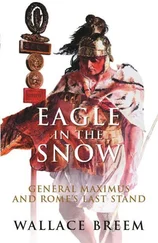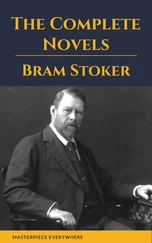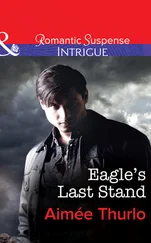To Fabianus I said quickly, “When the artillery cease fire they are to withdraw immediately back to our last camp. Call up the mules now.” The ships of our tiny fleet were firing steadily in their efforts to break up the advance, but though they did great damage the enemy still came on at the same steady pace. The skirmishing archers were falling back now, each man being covered in turn by the next until, out of range, they took to their heels and ran for the right and left of our centre. My left flank swung round slightly to face the overlap of the enemy right, and then, fifty yards from our motionless front ranks, the barbarians rushed us. I gave the order to fire and the ranks hurled their javelins while the archers flicked arrow after arrow into the mass before them. The enemy front suddenly became a line of huddled dead that mounted, in another moment, into a rising wall of bodies. As the lines crashed together the trumpet sounded twice and Quintus, at the head of his cavalry, fell upon their right flank with two thousand horse. Had we had more men we could have made of it another Adrianopolis. Trapped between the cavalry and the river they would have been hemmed in, forced to fight and die upon their feet until the collapse of the next warrior enabled each man in turn to fall where he stood. But we had not enough men and our success could be only limited. The shock of the cavalry charge broke up the impetus of their attack. They fell back and, in falling back, were forced to turn to face their new enemy. Ridden round by our horsemen, they closed up and fought back stubbornly. Quintus kept his cavalry under an iron control and the discipline he had installed into his commanders showed its worth. Squadrons charged, withdrew, reformed and charged again in hard tight formations so that it was difficult for the enemy to surround and pull individual riders down. For ninety minutes we held them and it was they who fought on the defensive, retreating slowly in a gigantic curve towards the river, pressed inwards the whole time by our cavalry whom they could not contain.
From where I sat upon my horse I could see the whole terrible scene quite clearly. I called up Marcomir’s Franks to support the centre, sent my light cohort out to the left to steady the hard pressed wing, and then rode up and down the line shouting encouragement. For a few brief moments I thought we might do it; and win. I threw in my bodyguard in a desperate effort to drive a wedge through their centre; the charge smashed home and then ground to a halt, checked by the sheer weight of numbers. The air was thick with dust; and the screams of horses, the cries of the wounded and the yells of the living made the giving of orders almost impossible. Very slowly the enemy began to give ground; but they did not break and their retreat was stubbornly ordered, as they withdrew sullenly towards their camp.
I sounded the advance, but my men were too exhausted to obey me. They stood exactly where they had been when the enemy disengaged, in groups and lines, leaning upon their swords; the wounded sinking to the ground; all too tired to follow up their partial success. The horses were blown and stood with bowed heads, sweating profusely, their riders slumped in the saddle, or toppling sideways as their aching muscles relaxed and the pain of their wounds became too much for them. They were quite unfit for another charge. A handful of skirmishers harassed the retreating enemy with bows and javelins; but that was all. A trumpeter blew the retreat and, with my bodyguard holding the field, the cohorts withdrew slowly towards the escarpment and the safety of their camp. The battle had been a draw.
Later that day the barbarians came out from their camp in small parties to collect their dead and wounded, and that night we saw the flames crackle and smelt the smoke of the funeral pyres as they cremated their dead.
The following morning I sent the wounded on ahead, in waggons, towards the safety of the bridge and Bingium. While the men rested, we checked our losses, sent patrols back to the battlefield to collect all the weapons and armour they could, and reformed units.
Aquila said, “The casualties are heavy, sir.”
“How many?” I asked.
“Four hundred dead and eight hundred wounded, I should say.”
“How many cavalry?”
“One hundred dead, two hundred and sixty wounded, and four hundred and thirty horses.”
Quintus listened in silence. He looked angry, tired and beaten.
“We shall have to bring the legion up to strength by drafts from the auxiliaries,” I said grimly. “Well, we did all we could. They won’t try to cross the river now, which is what we were afraid of.”
“No, sir.” He added as an afterthought, “They will wait for winter.”
Quintus said, “Are you angry that I persuaded you into this action?”
I shook my head. “Only a little. It will have done the men good. They were beginning to get bored with waiting. Now, at least, they know what they are up against.”
Aquila said, “We nearly did it, sir. With only a few more men we could have beaten them.”
I said gently, “And now we have less than before.”
Quintus did not look at me. He said, and his voice was sombre, “We, none of us, have any illusions now.”
The following morning we broke camp and I stood on a hilltop with Goar and watched the legion limp down the track that led to Bingium.
He said cheerfully, “It was a great battle. Your men fought like wolves.”
“And yours also.”
“Oh, we—we always fight well. We enjoy it. But we are not soldiers. I see now why you conquered the world. It is the discipline that does it. I—I should like to have been a Roman soldier. Do not laugh at me. It was my father’s wish. And mine also.”
“I do not laugh,” I said. “You will be a general yet when I am dead.”
The daughter of Rando had watched the battle from the hill above Moguntiacum and her face, when we rode in, was scornful. “I prayed that you would lose,” she said. “And my prayers were answered.”
“I did not expect to win, only to weaken them a little with losses. In that I succeeded.”
Her teeth snapped. “You are clever at twisting words. I hate you.”
“Of course.” I smiled. “Why not? You are the enemy too.”
We made up our losses by drafting men from the auxiliaries, and I wrote hurriedly to Flavius and told him to send me his conscripted recruits and all the horses he could lay hands on. I gave small awards in silver to those who had distinguished themselves in the fighting, executed two men convicted of cowardice, and promoted three centurions to replace those of my tribunes who had been killed. The badly wounded I sent back to Treverorum, and there was much hard work, repairing ballistae and armour, sharpening swords that had got blunted and damaged, and replenishing our stocks of missiles.
November came, and the winds blew from the north, and we had much rain; and sometimes on the river, in the morning and at night there was a grey mist so that we could not see from one bank to the other; and the gulls came inland from the sea in vast numbers and perched on the camp walls, or screamed about our heads till they sounded like men dying. And in the dawn the land would be covered with a white frost and, as I rode across the fields, I would see that the pug marks of the cattle were covered with a film of brittle ice.
One afternoon a boat put out from the further bank, bearing a green branch, and I went down to the river to see what it was they wanted this time. The young man who stepped ashore was Rando’s eldest son, Sunno. He looked thin and tired and there were purple marks, all puffy, on his neck and upper arms that showed he had been in the recent battle.
“So, you are the king now?” I asked him.
Читать дальше












